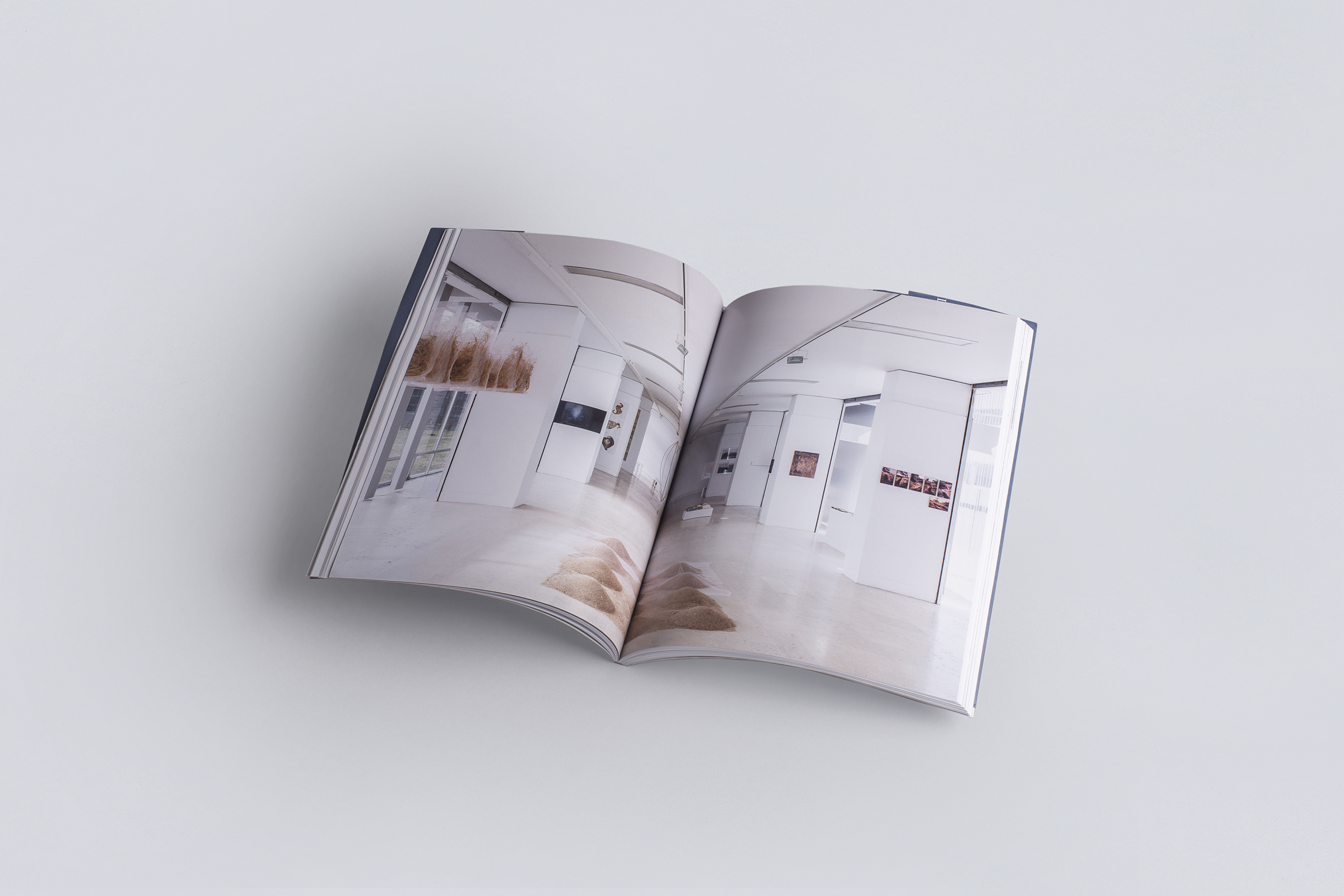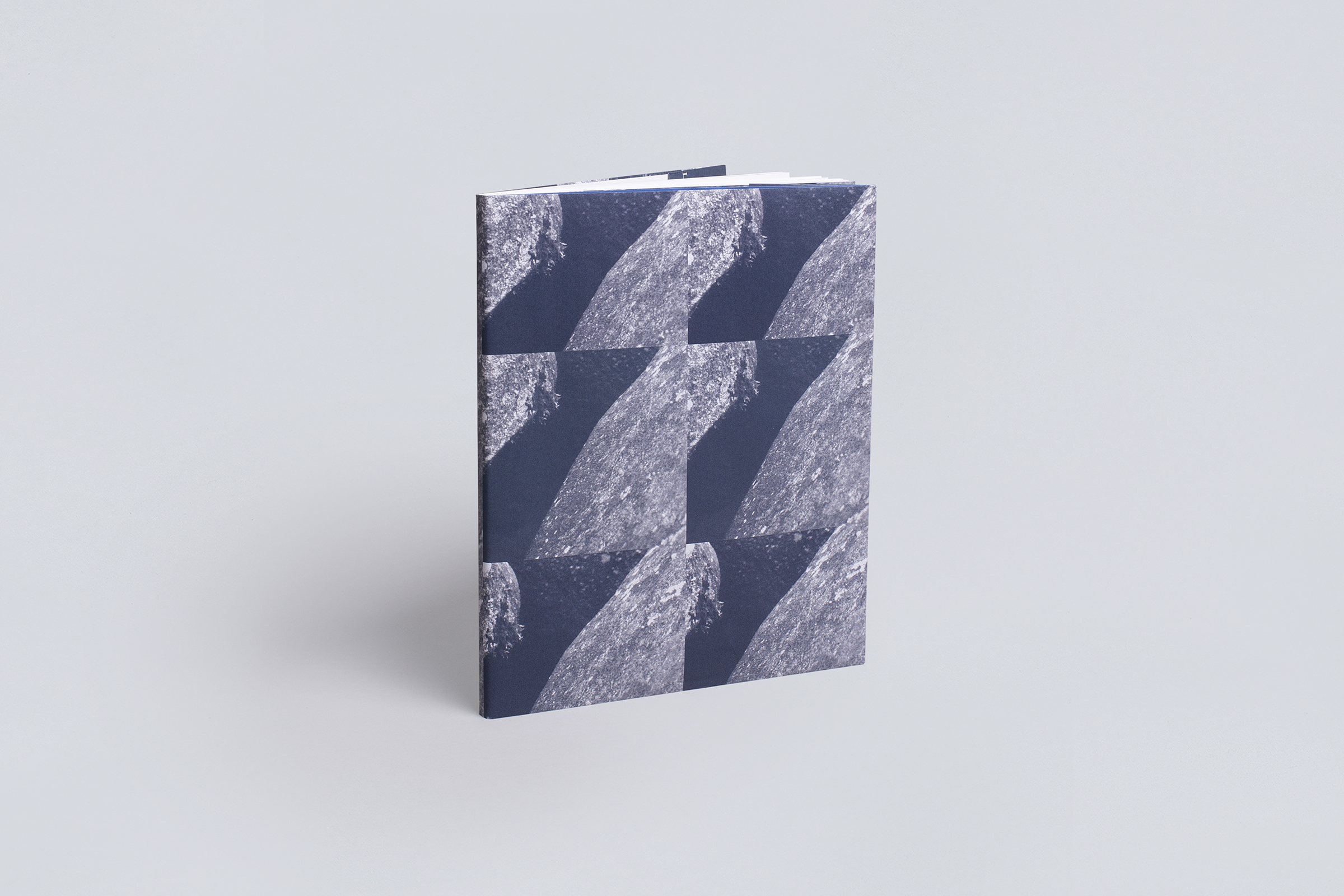Catalogue of the exhibition Earthkeeping / Earthshaking – art, feminisms and ecology that was on view at Galeria Quadrum between July 25 and October 4, 2020 (curated by Vanessa Badagliacca and Giulia Lamoni). This bilingual edition (Portuguese and English) features texts by Tobi Maier, Vanessa Badagliacca, Giulia Lamoni, Lucy R. Lippard, Marcello Di Paola, Emilio Tarazona and interviews with the artists Jane Logemann, Janet Culbertson, Merle Temkin, Patricia Johanson, Phyllis Janto, Sabra Moore, Sandy Gellis and Shirley Fuerst. This volume also contains photographic reproductions of the exhibited works and a specially commissioned envelope print by Maura Grimaldi.
“Since the first waves of feminism, and Simone de Beauvoir’s seminal The Second Sex (1949), subsequent waves of feminism have battled the dominance of the patriarchal model, heteronormativity, and cisgenderism in a constant challenge to liberate and legitimate people’s own understanding of their genders and bodies and their emancipatory agency in society. In times of intense debate on climate change as well as identity politics, the issues raised by this exhibition on art, feminisms, and ecology could not be more timely.”
-Tobi Maier
“While all the artworks exhibited question environmental and/or gender relations differently, the palpable heterogeneity of their discourses, aesthetic as well as political, reflects, from a methodological standpoint, the articulation of multiple voices that compose Heresies magazine’s thirteenth issue. In this sense, while this curatorial project promotes an historical examination of the pioneering role of women artists in exploring the relations between art practice and ecological thinking – a process more or less contemporaneous to the emergence of eco-feminist discourses – it also proposes to connect this perspective, and the archive that contributed to shape it, to the present.”
-Giulia Lamoni & Vanessa Badagliacca
“It has been years since I looked at Heresies 13, although in 1980-81 it was a compelling project. I had forgotten the breathtaking breadth and variety of its ninety-six pages. Almost forty years later it seems both prescient and dated. Prescient in the sense that climate and the environment now top the world’s crises (even as a pandemic fills all the space – a pandemic in part attributable to the destruction of wildlife habitats; a pandemic that is ironically clearing the air over traffic-stilled cities). Dated because, sad to say, the anger and hope expressed there have become too familiar. Today the question is what can artworkers do to bring the climate crisis back to the front pages.”
-Lucy R. Lippard
“Feminism and environmentalism have been involved in a rocky partnership for roughly half a century. Together they have fought emancipatory struggles of primary importance and achieved plenty of successes, while sharpening conceptual and critical tools that have enriched the topography of societal analysis in novel ways and to the benefit of all. Ecologically speaking, however, the big picture – that of systems of systems – is surely darker today than it was when that partnership began. The scales and stakes of environmental changes and challenges have steadily increased, while the planet has shrunk to accommodate twice as many humans. Earth has been drastically remorphed by technologically empowered extractivist forces and structures operating globally, and the climate has changed.”
-Marcello Di Paola
“In feminism, ecology and art, the problems faced (and their potential solutions) are not intrinsic to a single autonomous or individual mechanism. Instead, they are distributed across the discontinuity or interaction of elements that produce structures (or systems), and, at the same time, provoke occurrences within them: causes and effects that are often very distant from one another in time and space. They are forces with transdisciplinary agency, albeit ones that are difficult to coordinate: they straddle multiplicity and find connections between bio-geo-physical entities or through intersectionality.”
-Emilio Tarazona





